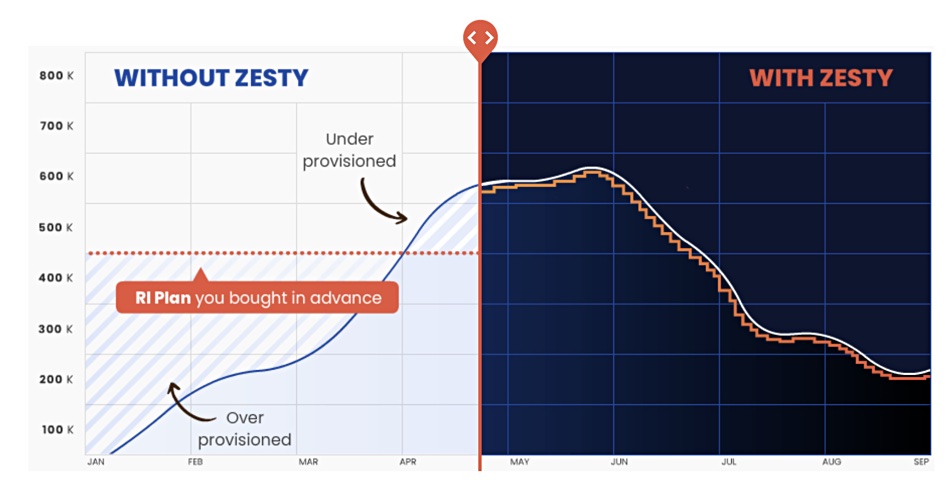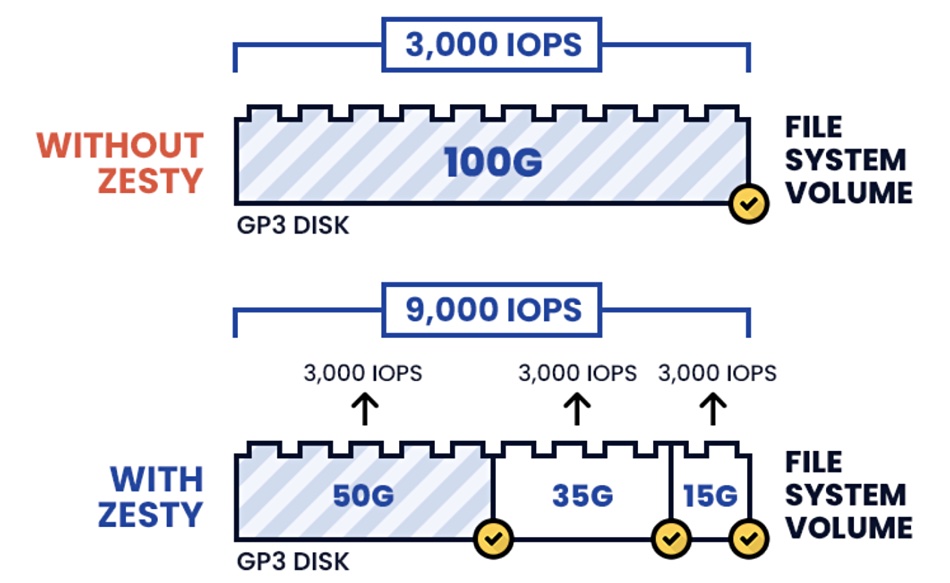Israel startup Zesty claims its software can reduce AWS EC2 instance cost by up to 45 percent by automatically managing AWS discount commitments. The Zesty Disk feature, it reckons, can save up to 70 percent on cloud storage costs by automatically shrinking and expanding block storage volumes as real-time application needs change over time. That’s because AWS users generally buy by provisioned capacity.

The Zesty Disk can boost storage IOPS and throughput performance by up to 300 percent as well, it claims. A single large volume, a GP3 Disk with 3,000 burst capacity IOPS, is turned into a virtual volume composed from multiple smaller physical volumes, each operating with 3,000 IOPS, which are added together.

How does Zesty Disk work? A downloadable Zesty Solution Brief PDF document says it: “continuously tracks usage metrics (Capacity, IOPS, and Read/Write Throughput) as well as Instance and disk metadata (such as instance type, disk type, volume names, etc) which are sent unidirectionally to Zesty’s backend.”
There are processed by an AI model which creates a behavioral profile of the instance volume, and uses this to predict the usage patterns. When the instance dictates that a change in capacity is required, the Zesty Disk backend process issues an APU request to the cloud provider to shrink or increase the capacity. It also sends an update request to a Zesty Disk collector function on the instance to adjust capacity.
Zesty was founded in 2019 by CEO Maxim Melamedov and CTO Alexey Baikov. It has raised $117.2 million in 5 funding events, including two seed, A and B rounds – the B-round in September 2022 brought in $75 million. Its software supports both AWS and Azure.
The closest competitor to our knowledge is NetApp’s Spot. This is cloud cost control software and part of its BlueXP management suite. NetApp bought Israeli startup Spot in June 2020, and claims the technology can save up to 90 per cent of public cloud compute and storage cloud expenses. These can, it said, account for up 70 percent of total public cloud spend.
Zesty’s percentage cost savings claims are more modest, but look worth investigating.








